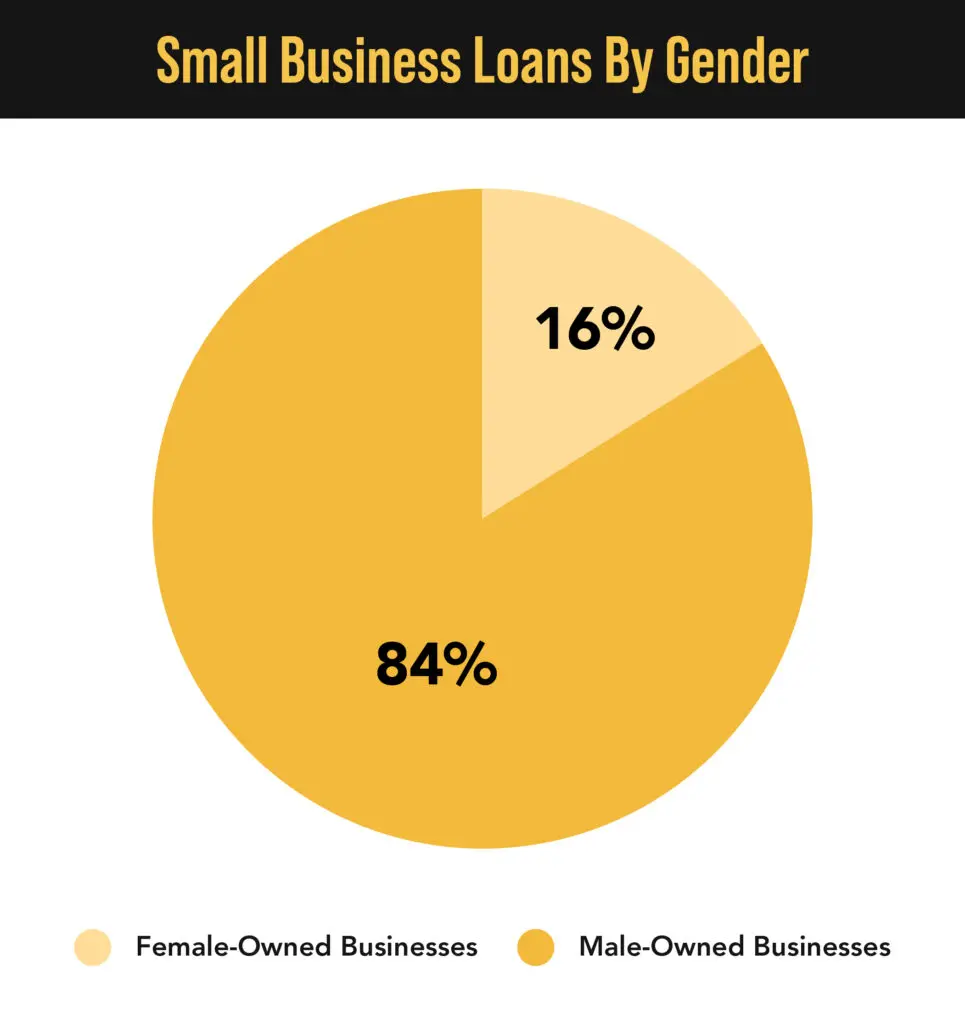Small businesses often face unique financial challenges that larger companies might not encounter. These challenges include managing cash flow, covering unexpected expenses, or seizing growth opportunities. In such scenarios, short-term loans are ideal for small businesses. This blog explores the numerous advantages of short-term loans and why they are a strategic financial tool for small enterprises.
What Are Short-Term Loans?
Short-term loans are a type of financing designed to be repaid within a short period, typically ranging from a few months to a couple of years. These loans are distinct from long-term loans, which often require collateral, have stringent credit requirements, and may involve a lengthy application process. In contrast, short-term loans for small business often offer more flexible terms and quicker access to funds.
These loans are particularly beneficial for small businesses that need immediate capital to address temporary financial needs. For example, a seasonal business might require additional funds to stock up on inventory before a peak season. Similarly, a manufacturing business might need a quick infusion of cash to repair critical equipment without disrupting production.
Short-term loans come in various forms, including lines of credit, merchant cash advances, invoice financing, and traditional term loans. Each of these options provides businesses with the flexibility to choose a financing solution that best meets their immediate needs and repayment capabilities.
Key Benefits of Short-Term Loans for Small Businesses
Quick Access to Funds
One of the most significant benefits of short-term small business loans is the speed at which funds can be accessed. Traditional bank loans often require extensive paperwork and can take weeks or even months to process. In contrast, short-term loans typically have a streamlined application process, enabling businesses to receive funds within a few days, or even hours in some cases.
This rapid access to capital is crucial for small businesses facing unexpected expenses or needing to take advantage of a sudden business opportunity. For instance, a retail store may discover a limited-time discount on bulk inventory purchases. A quick approval for a short-term loan allows the store to capitalize on this opportunity, stock up, and increase its profit margins.
Flexibility in Usage
Short-term loans offer significant flexibility regarding how the funds can be used. Whether a business needs to cover payroll, purchase inventory, invest in business equipment financing, or manage seasonal fluctuations, short-term loans provide the necessary adaptability. This flexibility allows businesses to allocate the funds in a manner that best suits their current needs.
For example, a restaurant might use a short-term loan to purchase additional stock and hire extra staff for a busy holiday season. On the other hand, a construction company might need funds for construction business financing, such as renting equipment or purchasing materials to complete a project on time. The versatility of short-term loans ensures that businesses can address a wide range of financial needs as they arise.
Easier Approval Process
The approval process for short-term business financing is generally more straightforward compared to long-term loans. Many lenders offer easy small business loans with minimal documentation and flexible credit requirements, making it easier for businesses to qualify for funding. This accessibility is particularly beneficial for businesses with less-than-perfect credit or those just starting and needing a quick financial boost.
Moreover, the rise of online small business loan applications has further simplified the process. Businesses can apply for a loan from the comfort of their office or even on the go, without the need to visit a bank or complete cumbersome paperwork. The digital application process often includes instant pre-approval, allowing businesses to know within minutes whether they qualify for funding.
Improved Cash Flow Management
Managing cash flow is a critical aspect of running a successful small business. Short-term loans can help smooth out cash flow fluctuations by providing working capital when revenue is low or expenses are high. Working capital loans for small business can be used to cover day-to-day operational costs, ensuring that the business continues to run smoothly without financial hiccups.
For example, retail businesses often use short-term loans to stock up on inventory before peak sales seasons. This ensures they have enough stock to meet customer demand without putting a strain on their cash flow. Similarly, a service-based business might use a short-term loan to cover payroll during a slow period, ensuring employees are paid on time while waiting for payments from clients.
Opportunity for Growth and Expansion
Short-term loans can also be a valuable tool for businesses looking to grow or expand. Whether opening a new location, purchasing new equipment, or launching a marketing campaign, access to quick capital can be a game-changer. Equipment financing loans and equipment financing for small business are examples of short-term loans that allow businesses to invest in essential equipment without the need for large upfront payments.
For instance, a printing business might use a short-term loan to purchase a new, high-capacity printer that can handle larger orders, thereby increasing its production capabilities and revenue potential. Similarly, a tech startup might use a short-term loan to launch a marketing campaign to increase brand awareness and attract new customers. The ability to access funds quickly and invest in growth opportunities can significantly impact a business’s success.
Lower Interest Costs
Compared to long-term loans, short-term loans generally have lower total interest costs. Because these loans are paid off quickly, businesses pay less interest over time, making short-term loans a more cost-effective financing option. This is especially beneficial for businesses looking to minimize their debt load and maintain a strong financial position.
For example, a business that takes out a 12-month loan will generally pay less in interest than one that takes out a 5-year loan, even if the interest rates are similar. The shorter repayment period reduces the amount of time interest accrues, saving the business money in the long run. This can be particularly advantageous for businesses operating on tight margins or looking to invest their resources back into the business rather than servicing debt.

Building Business Credit
For small businesses, building a solid credit history is crucial for long-term success. By taking out short-term loans and repaying them on time, businesses can improve their credit score, making it easier to secure larger loans in the future. A strong credit history demonstrates financial responsibility and reliability, which can be vital when seeking more substantial funding or negotiating better terms with suppliers and creditors.
For example, a business that consistently repays its short-term loans on time may find it easier to obtain a small business loan program with better rates and terms in the future. This is particularly important for businesses looking to expand or invest in more significant projects down the line, such as opening a new location or purchasing expensive equipment.
Tailored Financing Solutions
Many lenders offer tailored financing solutions to meet the specific needs of small businesses. For instance, a medical practice might require medical practice financing to cover the costs of specialized equipment or facilities, while a manufacturing business might need manufacturing business funding for production upgrades. These tailored solutions ensure that businesses get the right type of financing to meet their unique needs.
For example, a dental clinic might use medical practice business loans to purchase new diagnostic equipment, allowing it to offer more comprehensive services to its patients. Similarly, a small manufacturer might use manufacturing business loans to upgrade its machinery, increasing efficiency and reducing production costs. Tailored financing solutions provide businesses with the flexibility and support they need to achieve their specific goals.
Mitigating Risks in Uncertain Economic Conditions
Short-term loans are particularly valuable during uncertain economic conditions. In times of economic downturns or financial instability, small businesses may face reduced consumer spending, supply chain disruptions, or increased costs. Having access to fast small business loans can provide a financial cushion that helps businesses navigate these challenges without sacrificing their operations or growth potential.
For instance, during the COVID-19 pandemic, many small businesses used short-term loans to cover rent, payroll, and other fixed expenses while revenues were down. This quick access to funds helped them stay afloat during a period of unprecedented uncertainty. By leveraging short-term financing, these businesses were able to weather the storm and position themselves for recovery when market conditions improved.
Support for Seasonal Businesses
Seasonal businesses, such as landscaping companies, retail stores, or tourism-related businesses, often experience significant fluctuations in cash flow throughout the year. Short-term loans can provide the necessary working capital to manage these seasonal swings effectively. Working capital loans allow these businesses to prepare for busy seasons by stocking up on inventory, hiring temporary staff, or investing in marketing campaigns.
For example, a landscaping company might use a small business loan in Virginia to purchase new equipment and hire additional workers in preparation for the spring and summer seasons. Once the busy season ends, the company can repay the loan and avoid long-term debt obligations. This strategy helps seasonal businesses optimize their operations and maximize profitability during peak periods.

Real-World Applications of Short-Term Loans
To understand why short-term loans are ideal for small businesses, it is helpful to explore how these financial tools are used in various industries. Different types of businesses face unique financial challenges, and short-term loans can provide targeted solutions to help them overcome these hurdles and thrive. Let’s examine some real-world applications of short-term loans across different sectors:
1. Retail Businesses
Retailers frequently rely on short-term loans to manage their inventory effectively, particularly ahead of busy shopping seasons such as Black Friday, Christmas, or back-to-school periods. These peak times can account for a significant portion of a retailer’s annual revenue, making it essential to have enough inventory on hand to meet customer demand.
For example, a clothing retailer might use a short-term loan to purchase additional stock of popular items, such as winter coats or holiday-themed apparel, ahead of the holiday shopping season. By securing a loan, they can stock up on inventory without depleting their cash reserves. This allows them to avoid stockouts, maximize sales opportunities, and remain competitive in the marketplace.
A scenario where short-term loans prove valuable is in the aftermath of successful marketing campaigns. A retailer running a flash sale or an online promotion might experience an unexpected surge in demand. With a fast small business loan, the retailer can quickly replenish inventory to capitalize on the increased traffic and sales, thereby preventing lost revenue opportunities due to stock shortages.
2. Construction Companies
The construction industry is inherently project-based, which can lead to unpredictable cash flow. Payments are often received in stages based on project milestones, meaning there can be gaps between outgoing expenses and incoming payments. For construction businesses, managing these gaps is critical to maintaining smooth operations.
Construction company loans offer the necessary capital to bridge these cash flow gaps. For instance, a construction firm might need funds to purchase materials for a new project while waiting for payment from a completed project. These loans can also cover operational expenses such as payroll, equipment rentals, and subcontractor fees, ensuring that work continues without interruption.
3. Medical Practices
Medical practices, including dental offices, veterinary clinics, and specialized care facilities, often require expensive equipment to provide high-quality care to patients. These could include diagnostic machines, surgical instruments, or even technological upgrades like electronic health record (EHR) systems. However, the upfront costs for such equipment can be substantial, making it challenging for practices to fund these purchases out of pocket.
Medical practice business loans provide the necessary funds to invest in specialized equipment, expand services, or cover operational costs. For example, a dental clinic looking to offer advanced orthodontic services may need to purchase new imaging equipment. A short-term loan allows the clinic to acquire the equipment quickly, start offering new services, and attract more patients. The increased revenue generated from these new services can then be used to repay the loan, making it a financially sound investment.
4. Manufacturers
Manufacturing companies often face the challenge of needing to purchase raw materials or upgrade machinery to meet production demands. The cost of raw materials can fluctuate due to market conditions, and machinery may need regular maintenance or replacement to ensure efficient operations. Manufacturing business loans provide a vital source of funding to help manufacturers manage these costs and maintain production efficiency.
For instance, a small manufacturing business might receive a large order from a new client, which requires an immediate increase in raw material procurement. However, their cash reserves may not be sufficient to cover the cost of these materials upfront. By obtaining a short-term business loan, the manufacturer can purchase the necessary materials to fulfill the order, keeping production on track and meeting client deadlines.
Additionally, manufacturing firms may use these loans to invest in equipment upgrades or repairs. Up-to-date machinery is crucial for maintaining production efficiency and product quality. A manufacturer may need to replace outdated machinery or invest in advanced technology to stay competitive. A short-term loan can provide the capital needed for these investments, ensuring that the production line runs smoothly and efficiently.
5. Service-Based Businesses
Service-based businesses, such as marketing agencies, consulting firms, or IT service providers, often face challenges related to cash flow management, especially when dealing with clients on a retainer or milestone payment basis. Short-term loans can help these businesses bridge the gap between invoicing and payment collection, ensuring they have the working capital to cover day-to-day expenses such as payroll, rent, and utilities.
For example, a marketing agency might sign a new client for a large campaign that requires upfront costs for advertising spend, creative production, and talent fees. However, the client’s payment terms might extend over several months. A working capital loan allows the agency to cover these upfront costs without depleting its cash reserves. As the client payments come in, the agency can repay the loan, maintaining a healthy cash flow and financial stability.
7. Technology Startups
Technology startups often require rapid scaling to stay competitive and capitalize on market opportunities. Short-term loans provide these startups with the necessary funds to hire new talent, invest in research and development, or expand their product offerings.
For instance, a software development startup might use a short-term loan to hire additional developers to meet a tight project deadline or launch a new product feature. The ability to scale quickly can make the difference between capturing market share and falling behind competitors. As the startup grows and revenue increases, the loan can be repaid, making it a strategic investment in the company’s future.
Short-term loans are ideal for small businesses due to their flexibility, quick access to funds, easier approval process, and lower overall interest costs. These loans provide small businesses with the financial support they need to manage cash flow, seize growth opportunities, and navigate the ups and downs of the business cycle.
Work With VIP Capital Funding
Take your small business to the next level with VIP Capital Funding. We offer fast and flexible financing solutions tailored to your unique needs. Whether you need a short-term loan for immediate capital, equipment financing, or working capital loans to manage cash flow, we’ve got you covered. Apply today and secure the funds you need to grow your business without the wait. Reach out to us today.



